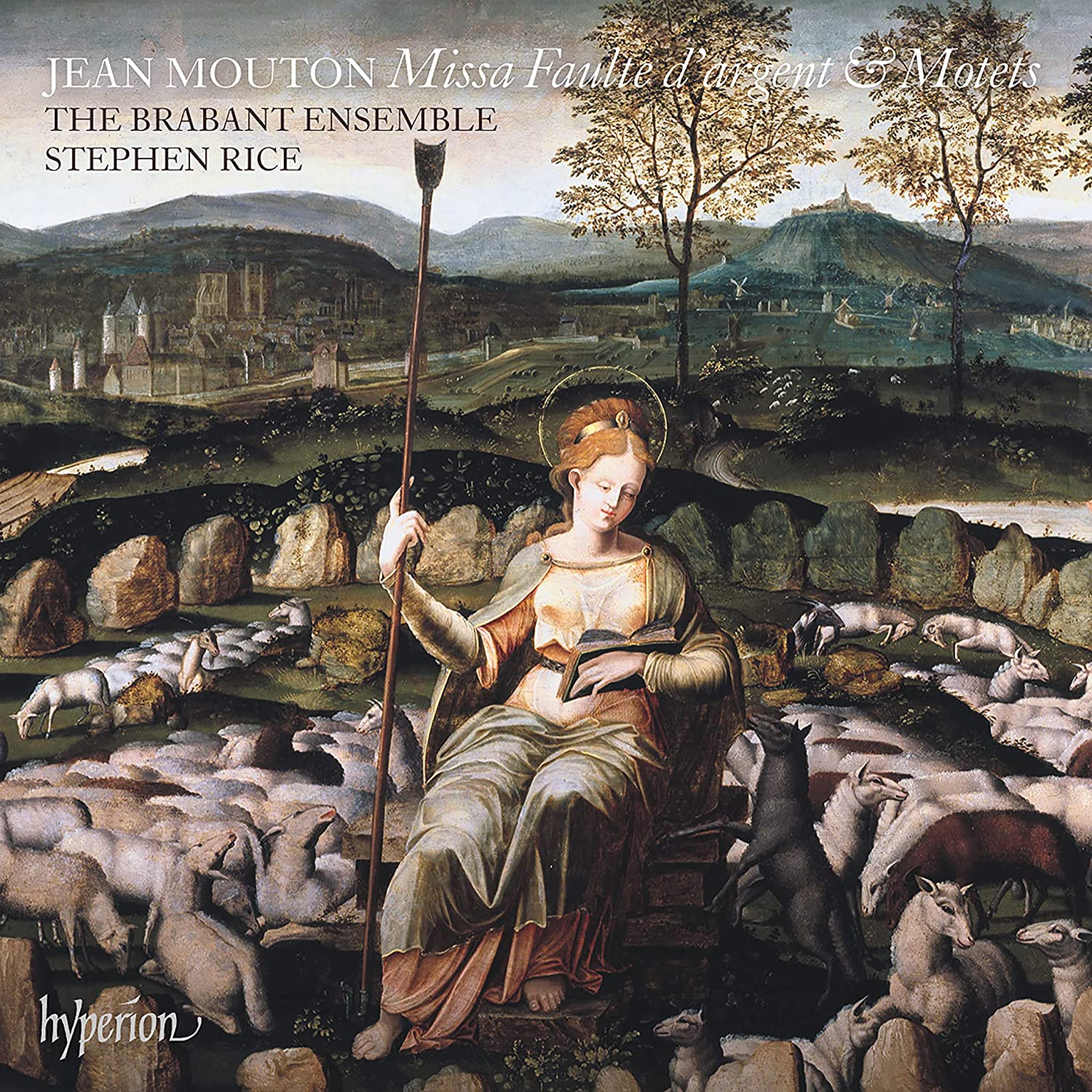The Brabant Ensenble, conducted by Stephen Rice
72:53
Hyperion CDA68385
Proclaiming Jean Mouton as one of the finest Franco-Flemish composers in the musical era between Josquin and Palestrina – which he is – does not make him outstanding. It merely renders him equal with a substantial number of similarly fine composers from that era who have enriched the canon of sacred vocal music with their works. Thanks to advances in scholarship and in performance practices, we can now also appreciate the intense distinctiveness of each of these composers, and that same singularity in each of their compositions. This second recording of Mouton’s music by The Brabant Ensemble (following CDA67933; acclaim also for The Tallis Scholars with another Mass and motets on CDGIM 047) introduces yet more hitherto unmined riches from his oeuvre with only one brief item having been commercially recorded previously. These wonderful tracks simply roll out one after another, individually varied while combining to create a disc that is both enjoyable and at the same time rewarding, spiritually and aesthetically. Characteristics of Mouton’s personal style include judicious use of reduced scoring, often employing pairs of voices successively; passages showing the influence of faburden; and the dramatic use of dissonance, not just at cadences. All these are in the context of the finest melody and harmony imparting a sense of spaciousness and yet an uncanny knack to give the impression that more voices are singing than is actually the case: there was more than one point at which I needed to confirm that a particular work was indeed in four parts throughout and not what had begun to sound like five (at least!).
The seven motets that form the first half of this programme all exhibit the edifying and excellently wrought features mentioned above. Subsequently they all appear in the Mass, to such an extent that it emerges as one of the finest from this remarkable generation of supremely gifted – and presumably well-taught – composers. Settings of the Agnus from Josquin, culminating in those for five and (especially) four voices by Byrd composed during the early to mid 1590s, can rise to sublime levels, not only here in Mouton’s Mass, but also in so many of these Masses by so many of these composers. Meanwhile today we are blest with choirs who understand this music, not just reproducing the notes accurately, but doing so with comprehension and empathy, both for the meaning of the music and for the manner in which that music, and the knowledge of that music, can best be dispensed. The entire performance of the Missa Faulte d’argent, which forms the second half of this programme, epitomizes all that is currently best in the performing and recording of Renaissance choral music. Every note is clear. Every melodic line is audible and can be followed in each part without difficulty by the listener. Every harmonic interaction, be it in the weaving and occasional clashing of melodic lines or in homophonic passages, is perfectly weighted. Tempi and volumes are calibrated to respond sensitively to the text and to the sound made by the music itself, so that there is never bland perfection nor emotional exaggeration, and the music and its text can be expressed as rhetoric or narrative, to inform, edify and delight the listener. Mouton has done humanity an enormous favour by composing this Mass. The Brabant Ensemble has done Mouton an enormous favour by selecting this Mass, and by recording it so eloquently. And the great thing is: there is so much more of this quality of music, by composers of this quality, still waiting to be rediscovered, and so much that has already been rediscovered that is waiting to be performed and recorded. And this is besides all the works we know already by (randomly adding to names already dropped) the likes of Fevin, Phinot, Gombert, Manchicourt, Crecquillon, Clemens and a heavenly host of others. In conclusion, I should like to make a plea to The Brabant Ensemble to consider making a disc like this one, consisting of the music of Lheritier. His few commercially recorded sacred pieces are spread over several discs; these motets are superb; he was respected by Palestrina … Meanwhile we can be grateful for this second recording by The Brabant Ensemble of motets and a mass by Mouton – he has proved more than worthy of their (exceptional) further attention.
Richard Turbet
